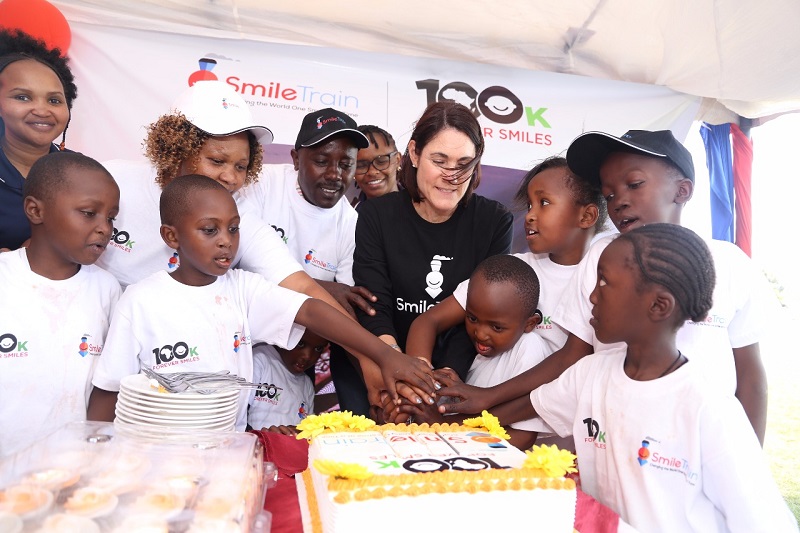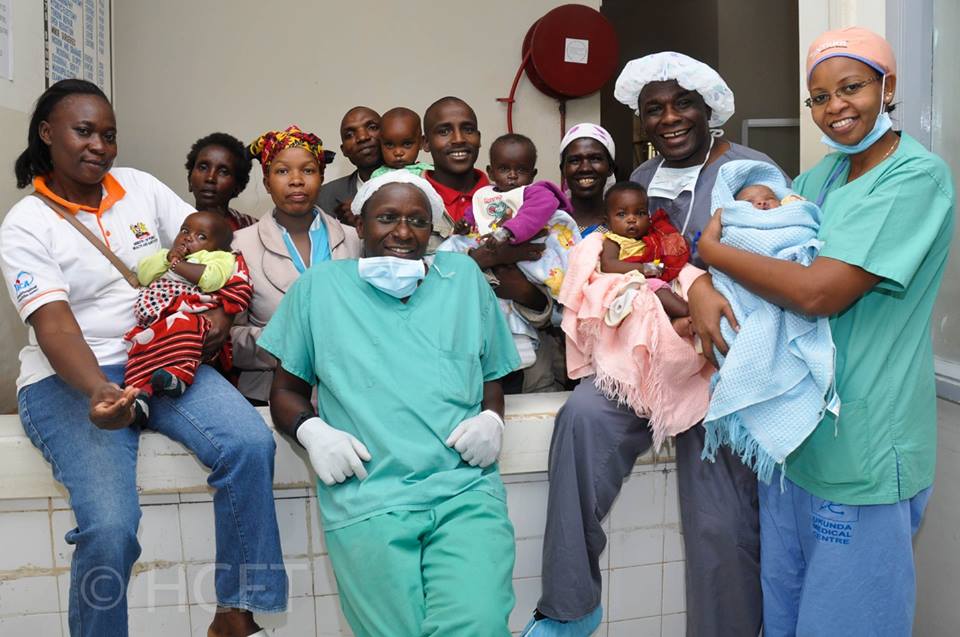African governments have been urged to allocate adequate funds to support the treatment of cleft lip and palate patients in their countries. Speaking during the official opening of the Pan African Association of Cleft lip and Palate (PAACLIP) 6th Scientific Congress, medical experts from across the globe said the cost of treatment and care for cleft lip and palate conditions is very high and needs full government’s support.
They called on governments to further create a policy addressing cleft lip and palate cases in their countries and entrench it into their healthcare systems to adequately cater for those affected by the condition arguing that most countries have no programmes to address this condition.
The scientific congress, the first of its kind to be held in Kenya brought together over 200 medical experts from 24 African countries and other countries including the USA, United Kingdom, Canada, Netherlands and Bangladesh to discuss key developments in the cleft lip and palate treatment globally.
The congress was themed ‘Shaping the future of cleft care in Africa by setting standards and protocols for better outcomes.’
It declared that;
- No person should be condemned for being born with a cleft lip and palate by not being offered treatment.
- Cleft care in Africa should be of the highest standard attainable, considered as part of essential services and included in universal health care for all.
- Each country represented would aim to adopt the standards protocols on cleft care developed during the congress.
Speaking at the conference, PAACLIP President Dr Asrat Mengiste said this meeting is a key milestone for the cleft lip and palate care as setting standards and protocol for treatment is key to improved surgery.
The event was sponsored by among others Smile Train, the world’s largest non-profit focused on cleft repair and treatment which promised to continue supporting countries in treatment of cleft cases.
“We are always searching for ways to further our impact and serve even more patients around the world. This congress will surely shine a light on new learnings and strategies our Smile Train partners can bring to the global stage to better serve our patients throughout Africa,” said Susannah Schaefer, Smile Train Global CEO adding that PAACLIP is a key stakeholder in lobbying for inclusion of cleft lip and palate in national surgical plans.
The congress was officially opended by Nairobi County Speaker Beatrice Elachi who commended ongoing efforts by PAACLIP to push for inclusive healthcare by African governments.
During the conference, 7 patients with cleft lip and palate conditions benefited from free surgery from top reconstructive surgeons drawn from local and international hospitals.
The operations sponsored by Smile Train and Nairobi Hospital were conducted at the hospital’s theatre and the patients will receive free follow up treatment, orthodontic care and speech therapy to rehabilitate them.
According to PAACLIP Secretary General Dr Meshach Ong’uti, most patients with cleft lip and palate defects cannot afford surgery and treatment for the condition thus the need to support local interventions to finance them.
“In Africa most insurance companies including our NHIF in Kenya do not cover cleft lip and palate deformities as they are considered congenital yet the surgery and treatment is not affordable to many,” He said adding that, the African governments must address this policy gap in order to support those affected.
READ: Gold mining exposes Kenyan women to mercury poisoning
Smile Train says it is keen on sustainable empowerment programmes that give local medical partners the opportunity to build capacity. There are 170,000 estimated number of cleft births in the developing countries with Kenya recording an annual figure of 1,300 births with the defects every year.
Globally, 1 in every 700 children is born with a cleft lip and/or palate. Clefts are the leading birth defect in many developing countries. The cleft incidence rate of individuals of Africa descent is approximately 1 in 1,200 births. No one knows exactly what the cause of a cleft lip and palate is, but most experts agree that the causes are multifactorial and may include a genetic predisposition as well as environmental issues such as drug and alcohol use, smoking, maternal illness, infections and lack of folic acid.











Leave a comment